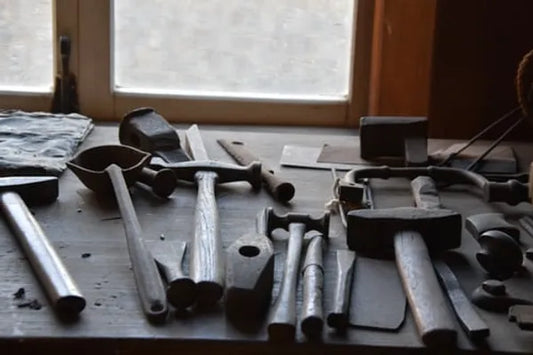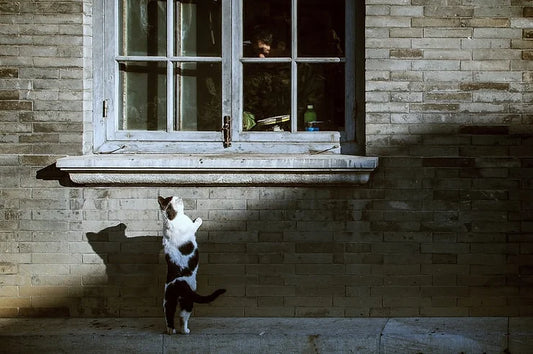
This is just one of the countless observations which made George Carlin one of the most beloved comedians of all time, and what’s really funny is, he’s spot on.
It’s been said that the best comedy contains an element of truth, and well, think about it:
How many times have you found yourself flat out flying in the fast lane when some half-crazed lunatic, aka, The Speed Demon, launches by you like you’re behind the wheel of the Flintstone family wagon?
Or found yourself breezing along a stretch of open road only to come up on the bumper of some sluggard, aka, The Slow Poke, doing half the posted speed limit?
Been there done that, right.
So the question is, is there an ideal cruising speed?
One that’s appropriate for all?
The answer of course is no.
Why?
Because we all run at a different clip.
THE SPEED DEMON
In his book, The First 20 Hours: How to Learn Anything Fast, bestselling author Josh Kaufman argues that, “You can get good enough at anything to enjoy yourself in just twenty hours.”
“Through twenty hours of focused, deliberate practice, you’ll go from knowing absolutely nothing to performing noticeably well.”
He calls this method Rapid Skill Acquisition.
Along that same vein, Tim Ferriss, author of The 4-Hour Workweek, created something called The Tim Ferriss Experiment, during which over the course of 13 videotaped episodes he learns to (among other things) drive a rally car, speak a new language, do jiu-jitsu, play golf, target shoot, surf, gamble, and even perfect the age old art of dating.
His motto: 5 days, Zero experience, and the world’s best teachers.
- First on Tim's list (and something very close to my own heart) is learning to play drums.
- The five day goal: sharing the stage with ‘70’s rock band Foreigner.
- The world class teacher for this opening round: ace percussionist for The Police, Stewart Copeland.
After four days under the guidance of Copeland we find Ferriss on stage alongside Foreigner’s resident drummer (separate drum kits) performing the bands top ten hit Hot Blooded.
Moments later, mission accomplished.
Now mind you while Ferriss does manage to get through the song (kudos Tim) it’s far from what one would call a stellar performance.
Nevertheless the demonstration is a success and it’s clear that Ferriss played, as Kaufman points out, “good enough to enjoy himself.”
THE SLOW POKE
On the opposite side of the learning curve we have Malcolm Gladwell’s 10,000 hour rule, which Kaufman sites in his book.
According to research conducted by Dr. K. Anders Ericsson of FSU, expert-level performance takes, on average, ten thousand hours of deliberate practice to achieve.
“Ten thousand hours,” Kaufman explains, “equals eight full hours of deliberate practice each and every day for approximately three and a half years―most of us count ourselves lucky if we can set aside a few hours week.”
“But before you give up all hope,” he continues, “consider this.”
“If you’re looking to become the next Tiger Woods you will in all probability need to spend at least ten thousand hours deliberately and systematically practicing all the conceivable aspects of golf. If on the other hand, you just want to be good enough at golf that you’re able to play decently, not embarrass yourself and simply have a good time, that’s another matter entirely.”
So, twenty hours.
Five days.
Three and a half years.
What’s it gonna be driver?
First off, hats off to both Tim and Josh for presenting a convincing case on the side of learning new skills in minimal time, and proving that there does exist such a thing as accelerated learning, and that in certain applications it can be beneficial.
But aside from getting “so-so” at something in a relatively short period of time what exactly is the key advantage to this amped-up approach?
According to Kaufman it’s the comforting fact that it can spare us the undue agony of wrestling with what he calls The Frustration Barrier. And aptly so, because the truth of the matter is for most of us when results fail to present themselves in a lickity-split manner or fall short of our expectations we tend to get frustrated, and in turn oftentimes wind up giving up altogether.
Contrarily, by learning new skills more quickly you can expect to gain an almost instantaneous sense of confidence; an on-the-spot rush of, “Yes I can do this!” exhilaration. Which by any account is certainly not a bad thing.
What you should not expect however is…
- The unrivaled satisfaction that comes from sticking with something, from working at something (one thing) over an extended period of time.
What this amped-up approach doesn’t bestow is…
- A deep and genuine appreciation for craft.
What it will unlikely impart is…
- A personal sense of pride and purpose.
What it cannot instill is…
- A profound level of understanding and wisdom.
“For Wisdom,” as avowed by King Solomon in Andy Andrews’ book The Traveler’s Gift, waits to be gathered. She is a gift for the diligent, and only the diligent will find her.
Twenty hours. Twenty years!
What’s it matter?
In the end this isn’t about some cockamamie time frame.
It’s not about how long it takes to get something done.
It’s about what you get out of doing it.
And the simple truth is the more you do it the more you’ll get out of it, period.
For what it’s worth the bedrock of your aspirations isn’t built on the shifting sands of an hourglass.
The battle cry of the good fight isn’t the perpetual ticking of some two bit pocket watch.
The gauging factor here is not time.
What counts, what truly matters, is how you choose to spend that time.
Short-lived challenge or lifelong dream, it’s your call.
It’s your race to run.
Follow your compass. Find your groove.
Then press on, because the road to life’s most treasured riches awaits those who quietly, and ever so steadily, forge ahead.
Be patient. Be happy. Be content knowing that today you gave it your best, and that the gift of tomorrow will once again afford you another golden opportunity to do the same.
See ya soon, till then, keeep it up.



